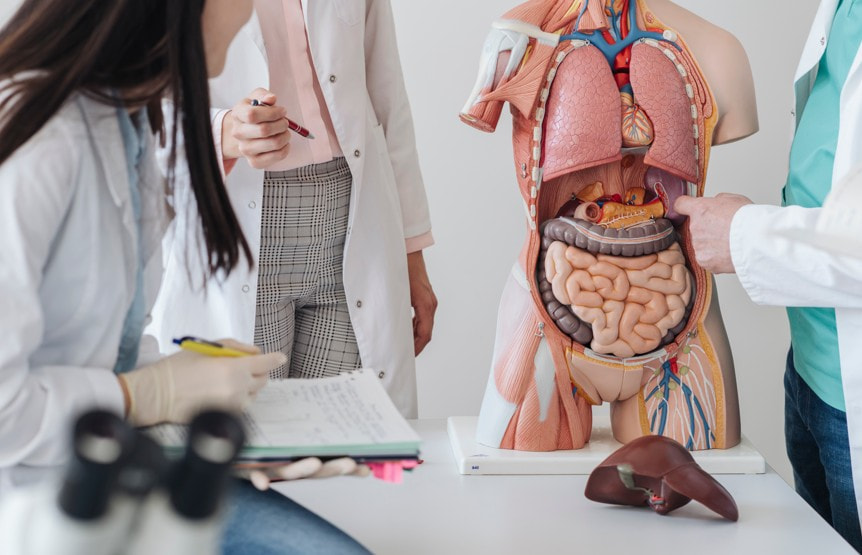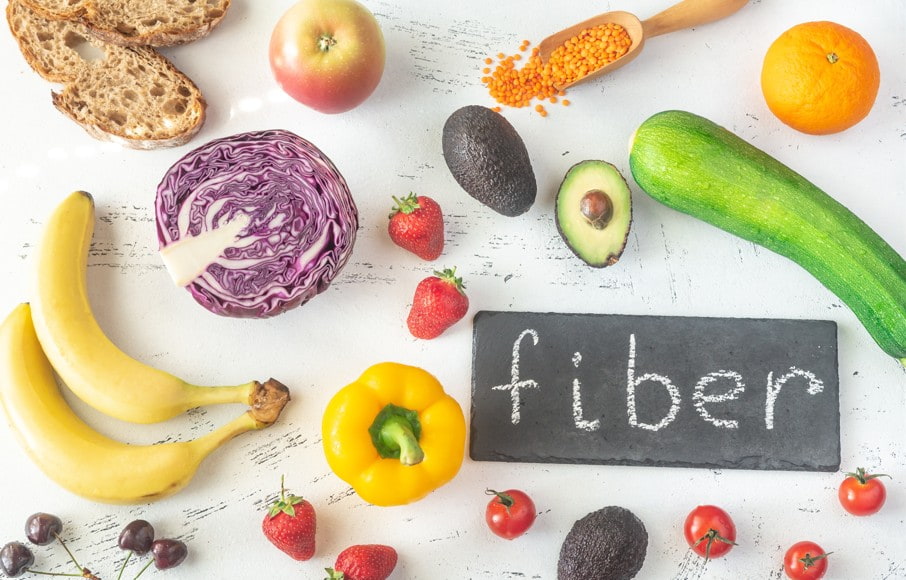Why Your Digestive System Deserves More Attention After 60
After turning 60, your body begins to tell a new story. One of the most important chapters? Your metabolism.
Metabolism naturally slows with age, which means:
- Calories are burned more slowly.
- Muscles may lose strength if not nourished properly.
- Energy can dip if digestion isn’t working at its best.
But here’s the key:
👉 If your metabolism changes, you need to change with it. The foods and habits that worked in your 40s or 50s may no longer serve you the same way today.
Why the Digestive System Matters for Your Whole Body
Your digestive system isn’t just about what happens after a meal—it’s the foundation of your overall health.
- Brain health: A healthy gut supports memory, mood, and focus.
- Immunity: Nearly 70% of your immune system lives in your digestive tract.
- Energy: Proper nutrient absorption gives you stamina for daily activities.
- Bone and muscle strength: Calcium, protein, and vitamins only work if your gut can absorb them efficiently.
Key Questions to Ask Yourself
- Do you often feel bloated or sluggish after meals?
- Have you noticed changes in appetite or digestion compared to a few years ago?
- Are you sure your body is absorbing all the nutrients you eat?
These are not small concerns—they’re signals from your body asking you to listen and adapt.
The Takeaway
Life after 60 is not about restriction, but about adjustment. By nurturing your digestive system, you’re not just helping your stomach—you’re protecting your brain, your heart, your bones, and your vitality.
🌿 Think of your digestion as the gateway to graceful aging. When it works well, the rest of your body follows.

1. Hydration Is More Than Water, It’s Your Body’s Digestive Rhythm
When people hear “stay hydrated,” they often think it means simply drinking eight glasses of water. But after 60, hydration becomes a much more delicate rhythm—one that directly shapes how your digestive system works.
Why? Because:
- Digestive juices (like stomach acid and bile) rely on water to break down food efficiently.
- Intestinal movement slows with age, and hydration is the fuel that keeps things flowing smoothly.
- Nutrient absorption depends on a moist, well-balanced environment in your gut. Without it, vitamins and minerals may not fully reach your bloodstream.
💡 Think of water as the conductor of your digestive orchestra: without enough of it, every instrument—enzymes, muscles, and bacteria—falls out of tune.
Practical Tips for Seniors
- Don’t just drink water—alternate with herbal teas, broths, or fruits high in water (like cucumbers or oranges).
- Sip consistently throughout the day instead of relying on thirst (which becomes less reliable as we age).
- Notice signs of hidden dehydration: dry mouth, fatigue, constipation, or even trouble concentrating.
🌿 Bottom line: Hydration isn’t a checklist. It’s a rhythm you create every day, and when your body is in sync, digestion becomes smoother, gentler, and far more efficient.
2. Make Fiber a Daily Priority for Long-Term Gut Health
After 60, your digestive system needs extra support to stay efficient and balanced. One of the most reliable ways to achieve this is through fiber, a nutrient that plays multiple critical roles in protecting long-term health.
Why fiber matters more with age:
- Supports healthy digestion: It adds bulk and promotes regular movement through the intestines, preventing constipation.
- Feeds your gut microbiome: Fiber is a natural prebiotic, giving beneficial bacteria the fuel they need to thrive.
- Protects metabolic health: A diet rich in fiber helps regulate blood sugar, reducing strain on the body’s energy systems.
- Reduces cardiovascular risk: Soluble fiber binds to cholesterol, helping maintain healthy circulation and heart function.
Practical Guidance for Seniors
- Aim for variety: Whole grains, legumes, vegetables, and fruits all contribute different types of fiber.
- Stay consistent: Incorporating small amounts at each meal is more effective than large occasional servings.
- Pair with hydration: Fiber works best when the body has enough fluids to process it smoothly.
Fiber is more than a nutrient—it is a daily strategy to keep your digestive system strong, your metabolism stable, and your overall health resilient.

3. Eating Slowly Trains Your Body to Absorb More From Less
As metabolism slows with age, how you eat becomes just as important as what you eat. Eating slowly is not only a mindful practice, it’s a physiological tool that helps your body maximize nutrient absorption and reduce digestive strain.
Why Eating Slowly Matters After 60
- Better absorption: Chewing thoroughly breaks food into smaller particles, giving enzymes and digestive juices more surface area to work with.
- Reduced digestive stress: Slow eating lowers the risk of bloating, reflux, and indigestion.
- Improved satiety: It takes about 20 minutes for the brain to register fullness—eating slowly helps prevent overeating.
- Hormonal balance: A slower pace supports the release of gut hormones (like GLP-1 and PYY) that regulate appetite and metabolism.
Practical Tools for Seniors
- Set a timer: Aim for at least 20 minutes per meal. Even starting with 5 extra minutes makes a difference.
- Chew with intention: Try 20–30 chews per bite—this creates a natural rhythm for digestion.
- Put utensils down: Rest your fork or spoon between bites to prevent rushing.
- Mindful cues: Focus on taste, aroma, and texture. Engaging your senses slows down eating naturally.
- Small portions, refilled if needed: Serve modest amounts at first; if you’re still hungry after 20 minutes, add more.

4. Movement After Meals: The Gentle Secret to Smooth Digestion
For centuries, cultures around the world have practiced a simple ritual after eating: moving. In Japan, people take short strolls called shoku-go sanpo. In Mediterranean countries, families often walk together after dinner. Science now confirms what tradition has always known, gentle movement after meals is one of the best gifts you can give your digestive system.
Why It Works
- Gravity helps you: Walking encourages food to move down the digestive tract more efficiently, reducing bloating and reflux.
- Blood sugar balance: Studies show a 10–15 minute walk after eating can lower post-meal blood sugar spikes, especially important for seniors managing diabetes.
- Circulation boost: Gentle activity directs blood flow to the stomach and intestines, aiding nutrient absorption.
- Gut motility: Light movement stimulates the muscles of the intestines, helping prevent constipation.
Practical & Interesting Tips
- The 10-minute rule: Aim for a short, easy-paced walk after lunch or dinner—think of it as part of the meal itself.
- Chair exercises: If walking isn’t possible, simple seated twists or leg lifts can gently massage the digestive organs.
- Posture matters: Avoid lying down immediately after meals; staying upright for at least 30 minutes reduces the risk of acid reflux.
- Make it social: Pair your walk with a phone call, a chat with your partner, or even a stroll with your pet—it turns health into a shared experience.
- Try “meal yoga”: Gentle poses like cat-cow or seated forward bends can relax the digestive tract and ease discomfort.
💡 Did you know?
Just 2 minutes of light walking after a meal can lower blood sugar by up to 20%. Even small, consistent actions create powerful results over time.
5. Strengthen Your Gut with Probiotic-Rich Choices
Did you know that your gut is home to over 100 trillion microorganisms? Together, they form the microbiome, a living ecosystem that influences everything from digestion to mood and immunity. After 60, this delicate balance can shift—certain beneficial bacteria decline, while harmful ones may thrive. That’s where probiotics step in.
Why Probiotics Matter
- Boost digestive comfort: They help reduce bloating, gas, and constipation by keeping gut flora balanced.
- Strengthen immunity: Nearly 70% of the immune system lives in the digestive tract, and probiotics are its key allies.
- Support nutrient absorption: They improve the way your body processes vitamins like B12, K, and minerals such as calcium.
- Improve resilience: A strong gut microbiome has been linked to lower risks of infections and even age-related inflammation.
Your Probiotic Guide
- Daily foods to include: Yogurt with live cultures, kefir, miso, sauerkraut, kimchi, and tempeh.
- Mix it up: Different foods contain different strains—variety ensures a more diverse gut flora.
- Timing counts: Take probiotic foods with meals to improve survival of bacteria through stomach acid.
- Consider prebiotics: Add bananas, onions, garlic, or oats—these are the “food” that probiotics need to thrive.
- Supplements wisely: If recommended by a doctor, choose multi-strain, high-quality supplements for consistent support.
💡 Interesting fact: Scientists call the gut the “second brain” because it contains more than 500 million neurons and directly communicates with the central nervous system. A healthy microbiome can influence mood, memory, and even sleep quality.







